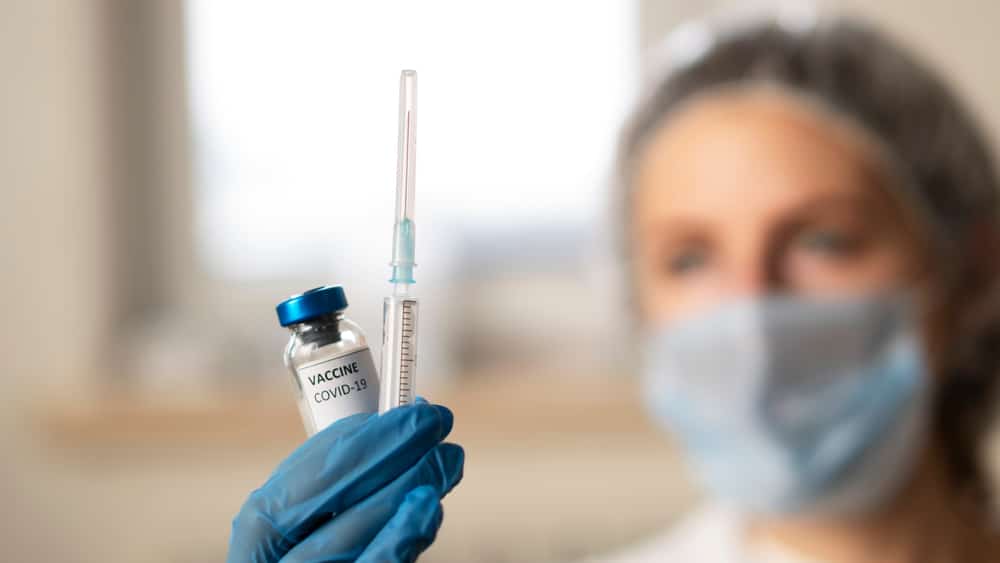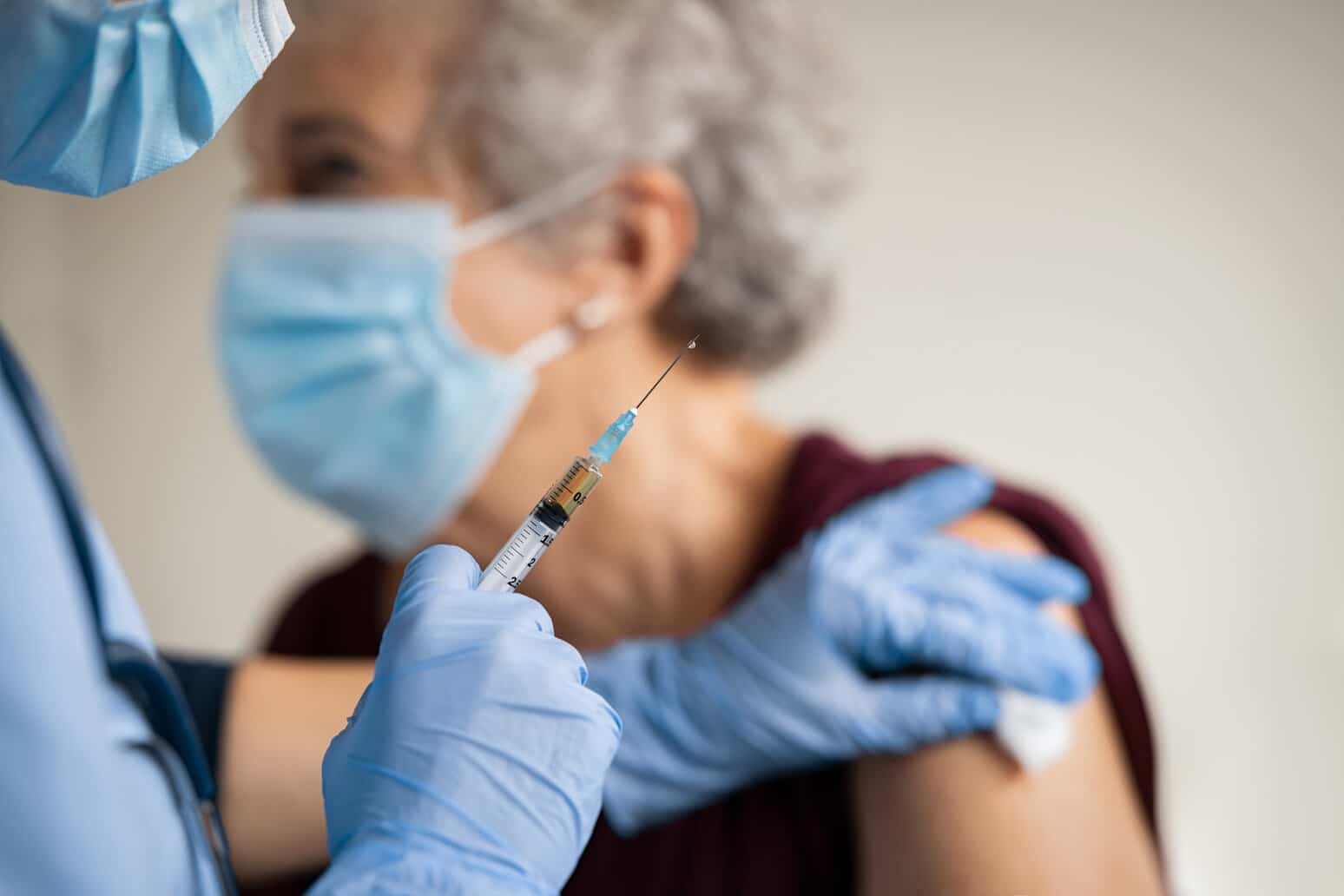Jasmine Birtles
Your money-making expert. Financial journalist, TV and radio personality.


Do you need compensation for a vaccine injury? More and more people are realising that they can get financial help if they suffered physical damage after having a vaccine.
At MoneyMagpie we want to be here for you when things go wrong. Life-altering situations can happen at any moment, so we wanted to share some information with you about vaccine injuries and the compensation you may be entitled to.

A vaccine injury also known as a vaccine adverse event is a severe reaction caused by having a vaccination against disease.
These injuries can be related to the vaccine itself (product or quality defect-related reactions). To the process of receiving the vaccine – error or stress-related reactions. Injuries can also occur independently from the vaccination (coincidental) and are classified as:
Most vaccine injuries are mild such as arm aches, sniffles and coughs. But on some rare occasions, they can be serious causing life-altering injuries.
The Vaccine Damage Payment Act 1979 governs vaccines injuries in the UK and set up the Vaccine Damage Payment Scheme (VDPS).
The Vaccine Damage Payment is a one-off, tax-free payment of £120,000.
You could be eligible for a payment if you are severely disabled and the disability was caused by vaccination against one of these diseases:
You may also be eligible for a payment if you’re severely disabled because either:
It is also possible to apply for this payment on behalf of someone who has passed away after becoming disabled as a result of vaccination. But you must be managing their estate to do so.
The UK Government classifies ‘severe disablement’ as at least 60% disabled.
This could be physical or mental and will be based on medical evidence provided by your doctor.
If you are blind in one eye or deaf in one ear that is considered 50%.
In most circumstances, the vaccination must have happened before your 18th Birthday, unless it was during the outbreak of a disease. There are also exceptions if it was against:
It is also worth noting that the vaccination must have taken place in the UK or the Isle of Man unless away with the armed forces.
You can apply by filling in this form on the UK Government website.
You can apply on somebody else’s behalf if:
There are some time limits on making claims.
To claim for an adult, apply by the latest of following dates:
It can take at least 6 months to process a Vaccine Damage Payment claim.
If the claim is related to the coronavirus vaccination it can take longer.
If your claim is unsuccessful in your claim you can ask for a ‘mandatory reversal.’
If the decision on your case was made after 27 October 2013, you can write to the VDPS. In your letter you must:
For claims made on or before 27th October 2013, contact the Vaccine Damage Payment Scheme for advice on how to challenge the decision.
The original decision will be reviewed again, and you will be sent the outcome either way. You will find out the reasoning if the appeal is unsuccessful. If you still disagree you can apply for another mandatory reversal, the is no limit on how many times you can apply for it.
You can also appeal to the Social Security and Child Support Tribunal which is independent of the government. You can choose whether you want to attend to explain your case or whether they can just use the evidence submitted. The appeal will be decided by a judge after a hearing with one or two experts. It will take around 6 months for your hearing to take place.
Traditionally, it has not been easy. The reason we have the VDPS is because families in the 1960s had children damaged by the whooping cough (pertussis) or polio vaccine and campaigned for the scheme. Other vaccines that resulted in multiple claims are the measles mumps and rubella (MMR) the human papillomavirus (HPV) and the H1N1 swine flu vaccine.
It took Jackie Fletcher 17 years to receive £90,000 compensation for the severe brain damage caused to her son Robert by the MMR vaccine he received as a healthy toddler in 1992. Robert was unable to talk, stand unaided or feed himself. He suffered frequent epileptic fits and still requires care 24/7.
Mrs Fletcher’s first application to the VDPS was rejected. She was told the family could not prove beyond a reasonable doubt that Robert’s injuries were caused by the MMR. Mrs Fletcher appealed, and she was finally paid what she described as a ‘derisory’ sum in 2010.
Swine flu victims injured during the 2008 and 2009 H1N1 swine flu pandemic vaccination roll-out, had a similar struggle after they won their claims. The vaccine had been rushed through in the pandemic without the usual rigorous trials.
The main symptoms caused by the Pandemrix swine flu vaccine, manufactured by GlaxoSmithKline (GSK), were the incurable neurological conditions narcolepsy (a condition that severely disrupts sleep patterns) and cataplexy (a sudden loss of muscle control leading to collapse) with the government forcing parents of injured children to return to court in what seemed like endless appeals.
MPs decided this was not right and complained, particularly as the government had again indemnified GSK against liability. Labour MP for Liverpool and West Derby, Stephen Twigg told the house in 2016: ‘Adjuvant vaccines have additional chemicals that speed up the body’s immune reaction to the antigen [swine flu virus], and it is considered that that sometimes increases the risk of adverse reactions.
‘The Department for Work and Pensions has accepted that the Pandemrix vaccine is capable of causing narcolepsy in children.’
Other MPs also criticised the slow response and pointed out that the government had indemnified GSK because there was a risk. They were right, so they should pay promptly.
Vaccine damage specialist, lawyer Peter Todd, a consultant to the firm Scott Moncrief, said: ‘Our whole system is pretty poor. In the US it’s much better. A levy on each vaccine sold is paid into a fund to compensate the injured.
‘The US scheme gives claimants the benefit of the doubt. Awards are based on a person’s total loss, or tort damages, so are much fairer.’
That means there is no limit on the amount you can claim and the highest award to date has been around $100million. In total, the US has paid out approximately £4billion in claims since 1989, while in the UK, we are paying a twentieth of the US rate. The VDPA has paid a total of £75,350,000 since 1979 and most of that amount was in the first few years to compensate whooping cough victims. If we were in line with the US, we would have awarded around £700million.
So far there are 920 claims lodged against the indemnified Covid vaccinations and so far, none have been paid. Peter Todd said: ‘The government is not supporting people who have suffered vaccine injury and the time has come to change that.’
